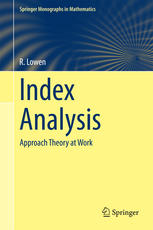

Most ebook files are in PDF format, so you can easily read them using various software such as Foxit Reader or directly on the Google Chrome browser.
Some ebook files are released by publishers in other formats such as .awz, .mobi, .epub, .fb2, etc. You may need to install specific software to read these formats on mobile/PC, such as Calibre.
Please read the tutorial at this link: https://ebookbell.com/faq
We offer FREE conversion to the popular formats you request; however, this may take some time. Therefore, right after payment, please email us, and we will try to provide the service as quickly as possible.
For some exceptional file formats or broken links (if any), please refrain from opening any disputes. Instead, email us first, and we will try to assist within a maximum of 6 hours.
EbookBell Team

4.3
88 reviewsThe featured review of the AMS describes the author’s earlier work in the field of approach spaces as, ‘A landmark in the history of general topology’. In this book, the author has expanded this study further and taken it in a new and exciting direction.
The number of conceptually and technically different systems which characterize approach spaces is increased and moreover their uniform counterpart, uniform gauge spaces, is put into the picture. An extensive study of completions, both for approach spaces and for uniform gauge spaces, as well as compactifications for approach spaces is performed. A paradigm shift is created by the new concept of index analysis.
Making use of the rich intrinsic quantitative information present in approach structures, a technique is developed whereby indices are defined that measure the extent to which properties hold, and theorems become inequalities involving indices; therefore vastly extending the realm of applicability of many classical results. The theory is then illustrated in such varied fields as topology, functional analysis, probability theory, hyperspace theory and domain theory. Finally a comprehensive analysis is made concerning the categorical aspects of the theory and its links with other topological categories.
Index Analysis will be useful for mathematicians working in category theory, topology, probability and statistics, functional analysis, and theoretical computer science.